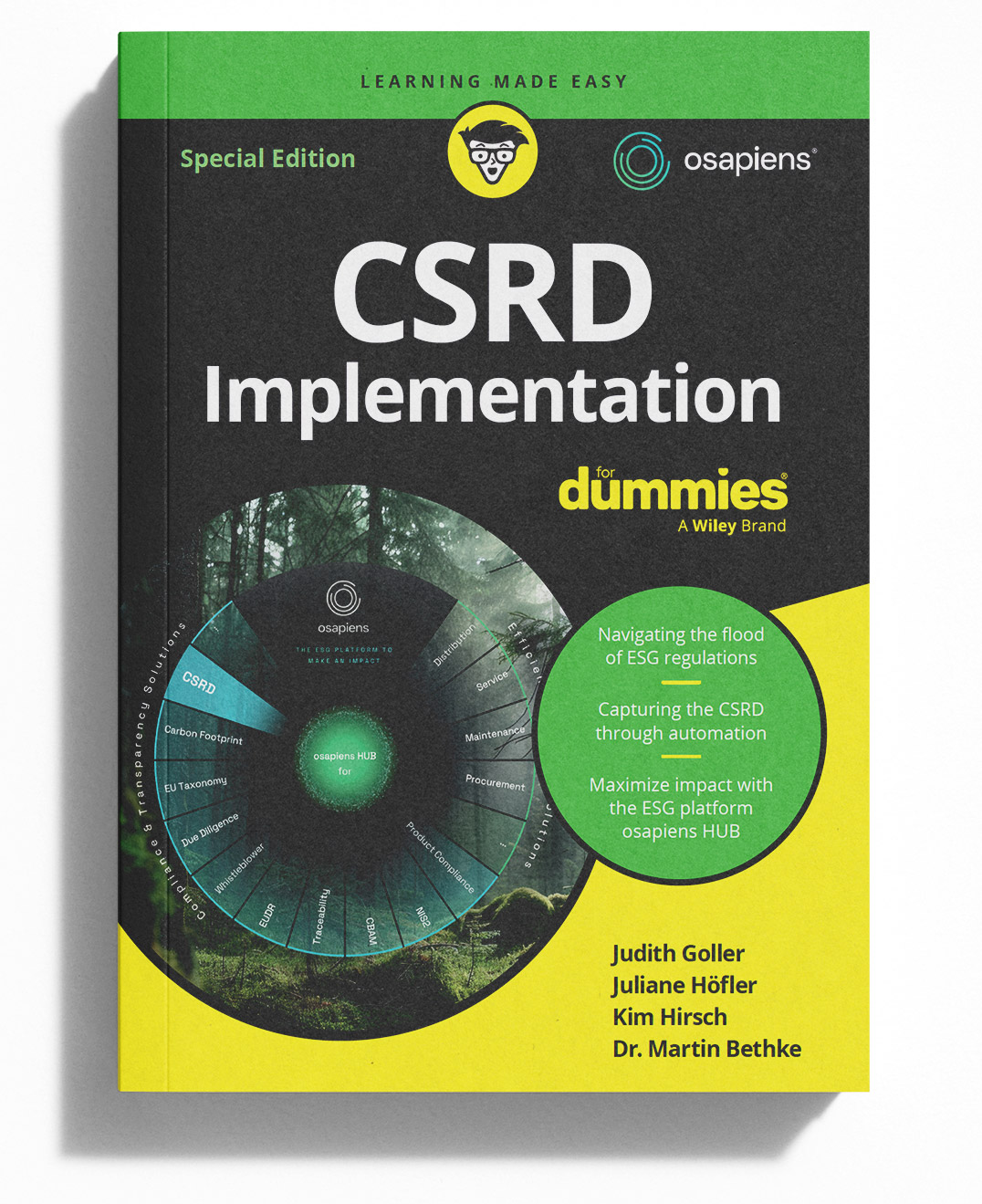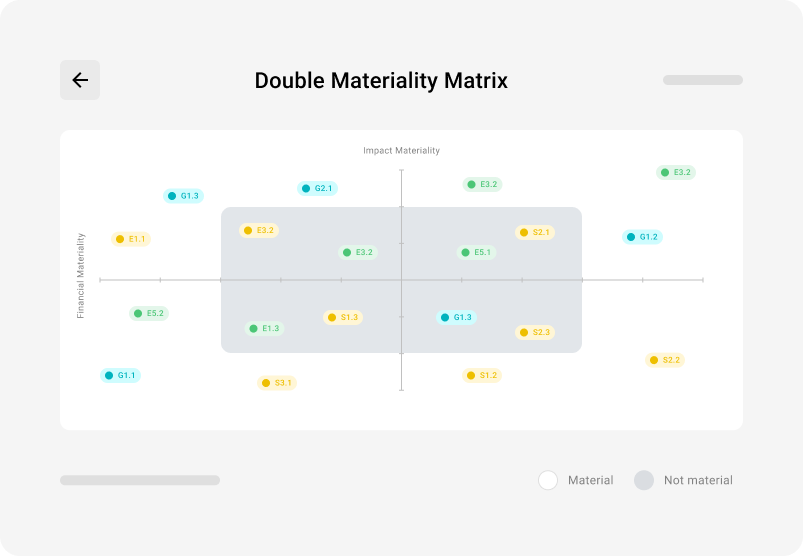Community
osapeers.org
Go beyond compliance: With osapiens HUB for Sustainability Reporting, you meet CSRD requirements and turn your data into a foundation for long-term growth. Scalable, efficient, and audit-ready – for regulators, stakeholders, and strategic decisions.
Trusted by 2,500+ companies across all industries
Sustainability is more than reporting – it’s a path to long-term success. With osapiens, you gain visibility, trust, and the tools to lead confidently into a transparent, compliant future.
All your data in one place
Access all your CSRD-relevant information in a single platform.Compliance made simple
Turn complexity into clarity with a fully automated reporting process from start to audit.Built-in guidance
Smart templates and frameworks guide you step by step.Ready for what’s next
Stay compliant today and adapt to future rules with ease with automated updates.Discover the osapiens “CSRD Implementation for Dummies” book – packed with practical tips, cheat sheets, and a step-by-step compliance guide.
Download your go-to resource for effortless CSRD implementation today.




